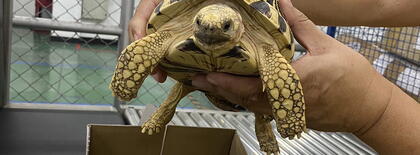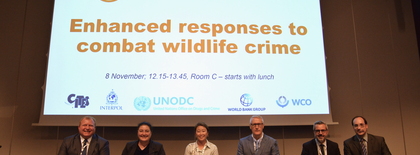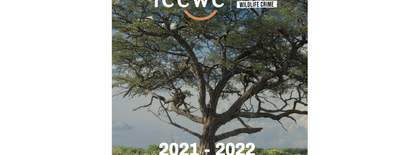The CITES Secretariat has received formal confirmation from INTERPOL, an ICCWC (International Consortium on Combating Wildlife Crime) partner, that Mr. Ansoumane Doumbouya, the former wildlife director and head of the CITES Management Authority of Guinea was arrested on 14 August 2015 by the Police (the National Central Bureau of Interpol) for his suspected role in corrupt and fraudulent actions in the issuance of CITES export permits.
Whilst on mission in Guinea in 2011 to investigate concerns regarding illegal trade involving Guinea, Secretariat staff brought suspected irregular activities to the attention of the head of the anti-corruption unit and the INTERPOL National Central Bureau of Guinea. The Secretariat’s team also identified significant problems with the manner in which CITES was being implemented in Guinea.
Consequently, a comprehensive list of recommendations was formulated by the Secretariat in consultation with relevant Guinean authorities[1]. As Guinea failed to provide the detailed reporting as requested, the Standing Committee, at its 63rd meeting in 2013, unanimously supported the Secretariat’s recommendation that all commercial trade in CITES-listed species with Guinea be suspended[2].
Neither the Secretariat nor the CITES Standing Committee is a law enforcement authority[3], and the mandate and responsibility to investigate alleged criminal activity within any country lies with the relevant national law enforcement authorities of that country. In this connection, the CITES Secretariat warmly welcomes the significant progress made in Guinea in making this arrest and congratulates all those involved in pursuing this investigation, especially the national enforcement authorities, which have worked closely with the EAGLE Network. The Secretariat will follow the course of the prosecution and continue to offer its support to the national authorities in Guinea to effectively implement and enforce CITES.
Corruption poses a serious challenge to combating illegal trade in wildlife. The historic resolution adopted the UN General Assembly resolution in July 2015 on Tackling illicit trafficking in wildlife “calls upon Member States to prohibit, prevent and counter any form of corruption that facilitates illicit trafficking in wildlife and wildlife products.” It notes the important role of CITES, the UN Convention against Transnational Organized Crime and the UN Convention against Corruption in this regard. The Conference of the Parties to CITES has also encouraged all Parties that have not done so to consider becoming a Party to both conventions[4].



